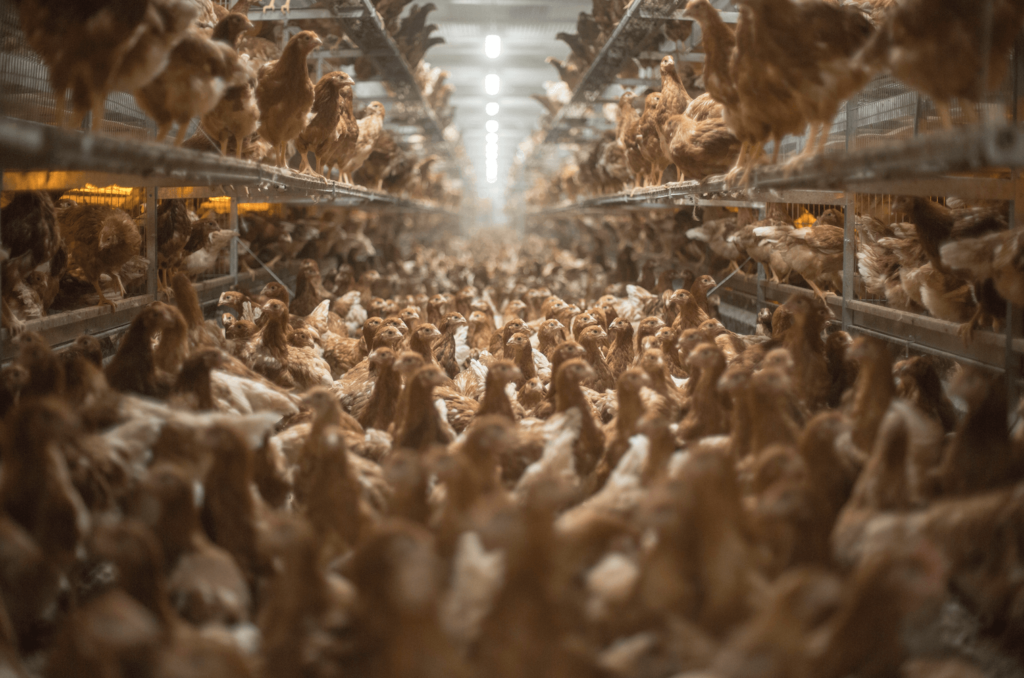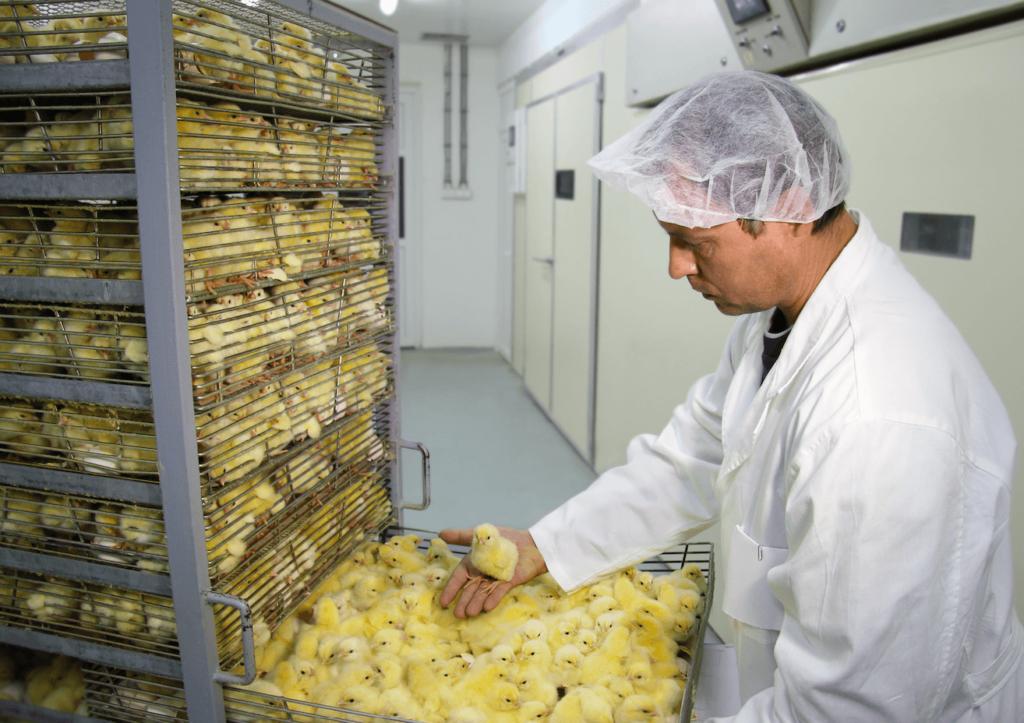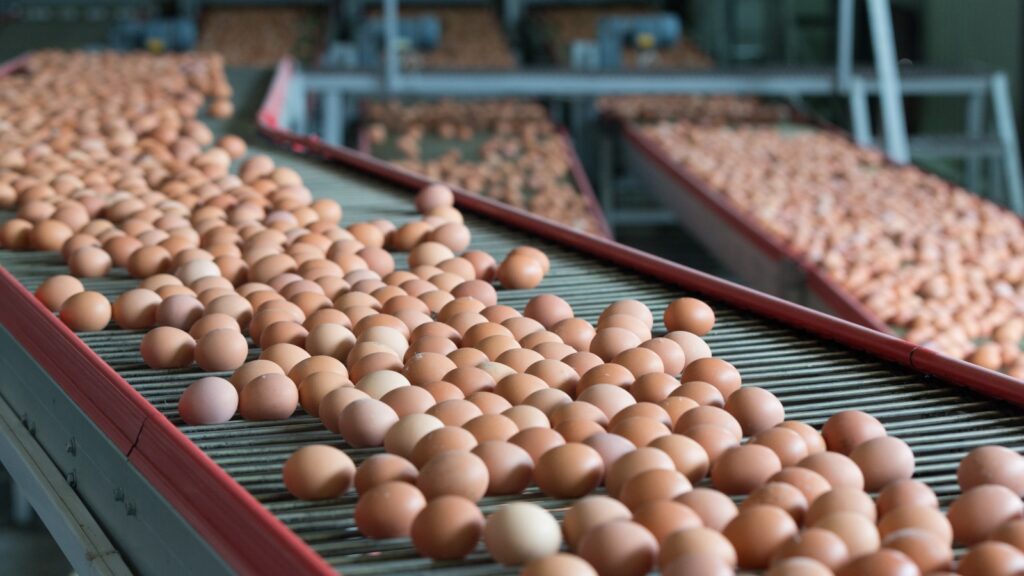Free-range eggs are no longer available to buy in the UK, after bird flu outbreaks led to thousands of chickens being locked inside for months.
It was November 2021 when the H5N1 strain of bird flu began to seriously alarm farmers in the UK.
The virus – which is highly contagious among chickens and can be fatal – began to sweep across England and Scotland, with separate outbreaks springing up in China and Israel, among other areas.
In December, UK farmers slaughtered of at least half a million birds in an attempt to curb the spread.
Bird-to-human transmissions of the virus are considered rare, but not impossible. In January, it was reported that the the H5N1 strain of avian bird flu had infected a human for the first time in the UK.
It’s estimated that around 700 similar cases have occurred worldwide over the past ten years.
According to the NHS, those in a country which has experienced an outbreak of the virus should ensure they wash their hands “often with warm water and soap, especially before and after handling food, in particular raw poultry.”
They should also use different utensils for cooked and raw meat, and ensure the animal flesh is “cooked until steaming hot.” They should also not eat raw eggs.
Why are there no free-range eggs in the UK?
The “free-range” chickens who were spared from the culls were moved indoors to help prevent the outbreaks from escalating. Government policy dictates that egg producers can keep their chickens in housing temporarily – for up to 16 weeks – if it is required to protect public health.
But as of Monday, March 21, the animals had been inside for longer than this grace period. Therefore, any eggs produced by these birds can no longer be legally labeled “free-range.” Instead, they are now considered “barn eggs.”
Prior to this, roughly 55 percent of eggs produced in the UK were considered free-range by the RSPCA.
Supermarkets are now placing signs explaining the circumstances to shoppers. The virtual ban on the free-range label will remain until the chickens are able to go outside once again, according to current policy.

“This is an incredibly difficult time for all bird owners and vigilance remains vital,” Aimee Mahony, chief poultry adviser at the National Farmers’ Union, said in a statement.
“Poultry farmers continue to do all they can to ensure the health and welfare of their flocks, including following stringent biosecurity measures and adding additional enrichments to the bird’s environment such as pecking blocks and dust baths.”
“Shoppers may notice different labels on egg packs as well as point-of-sale information explaining that the eggs have been laid by hens temporarily housed to protect their health and welfare.”
“Once the risk levels have reduced and the housing measures have been lifted by Defra, birds will be able to go outside again.”
It’s not the first time this has happened. A 2017 outbreak of the bird flu saw farmers keeping their chickens in captivity for months, again risking the free-range label.
Are free-range eggs actually ethical?
The news may unsettle some UK consumers, given the public’s general attitude towards barn and free-range eggs.
In 2015, a OnePoll survey released alongside British Egg Week unveiled that 80 percent of UK shoppers regularly purchase free-range eggs.
Then in 2020, YouGov data found that more than half (53 percent) of Britons are most likely to associate higher animal welfare standards with the term “free range.”
But most Brits were not aware of some of the methods used in the industry, the research discovered. For example, a majority of participants (62 percent) said they were not sure how often beak trimming took place, despite it being common practice in both the free-range and broader egg industry.
Beak trimming, or “debeaking,” involves burning off sections of the beaks of chicks as young as one day old. This is completed without anaesthetic and is done to prevent the animals from pecking at each other.

Such aggression is common in the egg and chicken industry due to the high number of birds confined together. Even free-range birds are kept in sheds at night, author Chas Newkey-Burden explained in an op-ed for the Guardian. Newkey-Burden wrote that free-range sheds can legally keep up to nine birds per one square meter.
Meanwhile, multi-tier sheds, which are still considered free range, can house upwards of 15,000 hens.
“So while these poor birds can theoretically go outdoors, they can also be too crammed in and too traumatized to find the few exit holes,” Newkey-Burden wrote, adding that we put the animals through “hell.”
The problem with the egg industry
The egg industry also involves the culling of all male chicks; these animals are considered a by-product of the sector since they do not lay eggs, and raising them for meat is not cost-effective. Instead, they are thrown into grinders at one day, or just hours, old.
The number of eggs traditionally laid by chickens is also not considered cost-effective. Because of this, producers have, over time, selectively bred chickens to increase egg volume. In the wild, hens lay just 12 eggs a year, according to the Humane League.
In contrast, chickens in modern farms can lay one a day, marking a nearly 3,000 percent increase.
This takes a toll on chickens’ health, leading to an increased risk of heart failure.
According to the aforementioned YouGov poll, one in six Brits believe UK farms have “very high” animal welfare standards. Just five percent of vegans and vegetarians thought the same.






